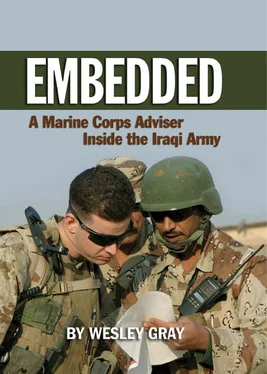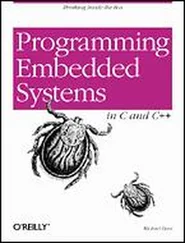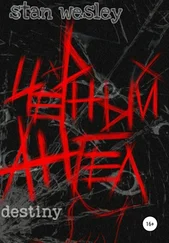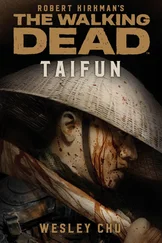I inquired further. “Moody, I understand that it’s all about who you know in this country, not what you know. My only concern is if Tseen is skimming money off the soldiers and lining his own pockets under my watch.” Moody and Ahmed responded as if the answer were completely obvious. “Yes, of course he does. All pay officers skim pay. Why do you think being the pay officer is such a highly regarded position in the Iraqi Army?” I immediately replied, “He is stealing money from the jundi ? How is that possible? I keep track of everything he does here at the battalion level. Plus, the higher level MiTTs do the same thing all the way up the chain until it reaches MOD.” Moody jumped in. “Jamal, Jamal, before you go any further, let me tell you about my trip to the MOD with Tseen last year.”
Moody shared his experiences of corruption, money, and power at the MOD. It played like a Shakespearian drama. He explained to me that the MiTTs do a wonderful job of ensuring there is very limited corruption regarding the pay process. Without them, he said, there would be massive levels of fraud and abuse within the Iraqi pay system. However, because of the American military presence within military units, all the checks and balances worked efficiently and correctly.
Unfortunately, the true corruption happens at levels beyond the U.S. military’s purview, namely, in the MOD. At the MOD two corrupt officers will forge documents or submit false rosters and split the winnings. Their oversight is minimal and everyone expects them to be corrupt. After all, that is one of the benefits of being in the pay officer position.
Moody gave me examples of pay officers engaged in corruption. A favorite technique of pay officers was to create false rosters of soldiers. The rosters included the names of anywhere from fifty to three hundred soldiers who had recently quit the Iraqi army. But because of the slow process of updating rosters and the bureaucracy at the MOD, these pay officers were able to collect the pay for these “ghost” jundi .
The final punch line from Moody and Ahmed was that corruption had happened, and was going to happen, whenever money was involved. In Iraq, they said, corruption is a form of payment to individuals who are able to make it to positions of power or to those who have spent time creating networks of friends. The basic logic is as follows: if I spend an entire lifetime building relationships and forming bonds that allow me to reach a position of power, I should be able to extract economic benefits from my position in the form of corruption. Otherwise, what would be the incentive to rise to a position of power?
The more I think about the corruption problem in Iraq, the less I feel the solution is to crack down on these practices. Iraqi corruption is as respected and commonplace as hard work is to the Japanese. Can we tell people in Japan that hard work is bad and that they should simply quit and become lazier? Likewise, I am not sure that telling Iraqis they need to stop being corrupt is the best way to approach Iraq’s corruption problem. If we want to fix this issue, first we need to understand the role it plays in the culture.
Tribalism. For most Americans the word conjures up the image of a group of Indians sitting in teepees smoking peace pipes. My experiences in Iraq dispelled this idea. I slowly came to understand that a different sort of tribalism pervades Iraqi society. Tribalism has been in this area of the world since the dawn of humankind—before the Crusades, before Islam, and before Christianity. It has been part of the Arab culture for thousands of years. I will save some time by compacting thousands of briefs and papers on Iraqi tribalism into two statements. First, tribalism exists because it helps facilitate survival in austere environments. Second, the method of survival in a tribal context is to ensure members of the tribe focus on community survival versus individual survival.
While no exact parallel exists, the closest Western organization that works on the same fundamental principles is the gang. Gangs are tight-knit groups that bond people together for purposes of survival. Put simply, a solo gangster with an Uzi cannot maintain drug-trafficking turf in Los Angeles because he is an easy kill; however, thirty gangsters with Uzis are much more difficult to defeat. Similarly, in the desert there may be only one watering hole for fifty miles. A few Arabs alone cannot expect to defend this key turf, but a larger group can maintain their resources and livelihood.
Gangs also tend to deemphasize individual efforts and focus more on the efforts of the group. For example, the members do not say, “I am Mike the Maniac and I am also a Crip.” To the contrary, they will say, “I am a Crip.” This focus of attention on the Crips, or the community and not the individual, ensures unity of effort in defending the gang turf. Anyone who shows signs of defecting from the gang is killed or banished from the gang for fear they may ruin gang integrity and thus the strength of the gang. The exact same mindset of gangs applies to Iraqi tribalism and to Arab culture as a whole.
Moody was always a great source for interesting insights into how tribalism works in Iraq. It was perplexing that he, as the most highly educated and civilized of our terps, also had the greatest tribal pride and adherence to tribal culture. This was just another example of how pervasive tribal identity is in Iraq, even within the well-educated and highly civilized population of Iraq. Tonight’s discussion revolved around the tribal concept of “blood money.”
Moody told me about a typical homicide situation in Iraq. Let’s say Ahmed, who is part of the Dulaym tribe, kills Hyder, who is part of the Janabi tribe. Based on tribal custom, if someone from another tribe kills someone in your tribe, you must get revenge for this action or all honor in your tribe is vanquished. To lose the honor of the tribe is to lose all credibility in bargaining, to lose all your friends’ respect, and to become an outcast in society. Because honor is so important, there is a logical reason why revenge is a good idea in tribal society.
Revenge, in the context of a homicide, means killing someone in the other tribe—quid pro quo. Obviously, the logical progression of this system would imply that all tribes would eventually kill each other off. Fortunately, it does not work like this.
There is another way to get revenge and restore honor that does not involve killing a member of the other tribe. This alternative comes in the form of cold, hard cash. This cash, or “blood money,” can serve as retribution for one member of a tribe killing a member of another tribe. Fortunately, when blood money is involved there is no actual blood shed after the original homicide occurs. The exact blood money amount to be exchanged is determined between the sheikhs of the two respective tribes and is negotiated in a systematic and civilized manner. The system is very similar to the way the Vikings and Anglo-Saxon clans did things over a thousand years ago in northern Europe.
So while on the face of it the tribal system of revenge may seem primitive, it actually is quite civilized and relies on money as the diplomat. The U.S. military has even embraced the blood money concept. Many times the U.S. military will pay off sheikhs or families for accidental deaths. The idea of paying off Iraqi families for their pain and anguish may seem very crass to Americans, but the payment suffices as blood money and serves to prevent any retaliatory attacks from the tribe affected.
While money solves nearly all tribal conflicts, it is not foolproof. Moody told me about a famous sheikh who lived about sixteen hundred years ago in Iraq. “Jamal, this sheikh was the only sheikhh in history who would not accept blood money—and it led to disaster. As the story goes, a member of an opposing tribe killed the sheikh’s brother. As is customary, the opposing sheikh came to negotiate with the affected sheikhh for the blood money amount he would need in order to restore his honor. The affected sheikhh’s response was ‘I do not want your money—I want my brother!’” I stopped Moody. “Wait, why didn’t he accept the money? Doesn’t that mean there will be a war?” Moody replied, “Yep, the sheikh called for war. Eventually, one revenge killing led to another. The downward cycle of death decimated both tribes in the end. Here is the moral of the story Jamal: accept blood money payments.” I concurred with Moody’s assessment. Moody responded in jest, “Jamal, you want to know what is even more remarkable about this story? This is the only time in the history of Iraq it was not about the money.”
Читать дальше












